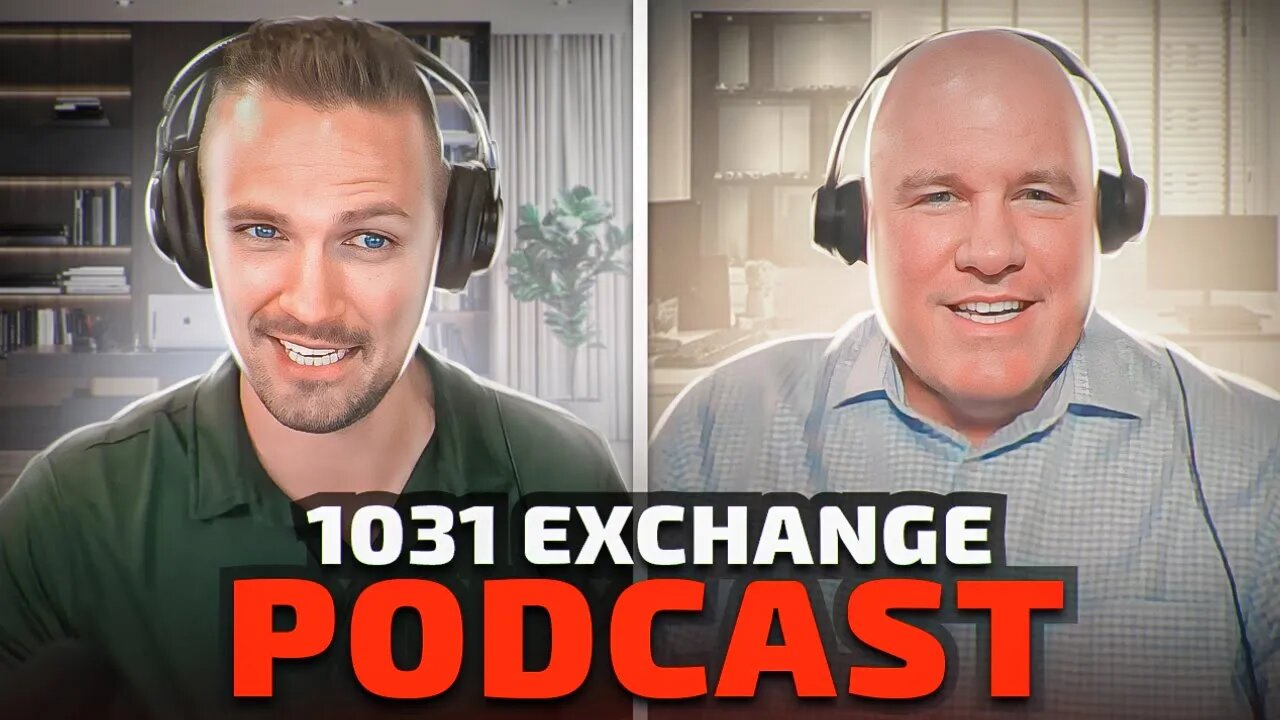Premium Only Content

Finally! Scott Saunders Teaches 1031 Exchanges for Land Investors | REtipster Podcast 167
Show Notes: https://go.retipster.com/167-scott-saunders/?utm_source=youtube&utm_medium=social&utm_campaign=podcast&utm_content=HaZsXo7nnQs
Join Our Community: https://welcome.retipster.com/newsletter/?utm_source=youtube&utm_medium=social&utm_campaign=podcast&utm_content=HaZsXo7nnQs
If you’ve been around the real estate investing world for any length of time, you’ve probably heard of the 1031 Exchange before… but just in case you haven’t, we’re going to give you a quick primer on what this is and more importantly, how you can use it to save yourself a TON of money on taxes as you’re growing your real estate portfolio.
The 1031 Exchange is one of those fantastic tax advantages real estate investors get to take advantage of, and you NEED to know about this if you’re planning to make it big in real estate.
In this lesson, I'm talking with Scott Saunders, the Senior Vice President of Asset Preservation Incorporated. Scott has an extensive background and a huge wealth of knowledge and experience in this realm. He will help us develop a new understanding and appreciation for how you can use this mechanism to get further, faster when you’re upsizing your portfolio, whether you're selling off a piece of land or some other type of real estate.
As land flippers, we are often considered "dealers" who cannot take advantage of this helpful tool, but much of your classification depends on your intent and how well you document it along the way, so be sure to learn how to do it right!
0:00 - Introduction to the 1031 Exchange
2:40 - Advantages for Land Investors
8:57 - The Power of Deferring Taxes
10:42 - Accessing Equity with a Refinance
11:34 - Timeline and Deadlines
12:59 - The Exception for Presidentially Declared Disaster Areas
13:30 - Timelines and Flexibility in Property Identification
14:34 - Tips for Easier Property Identification
15:41 - Three Different Rules for Property Identification
26:21 - Qualified Intermediaries and Tax Fraud
28:47 - Catching Qualified Intermediaries
30:44 - Ensuring Good Security
33:32 - Minimum and Maximum Deal Sizes
38:37 - The Potential of Real Estate Investment
39:52 - Tax Liability and Foreign Properties
41:12 - Proving Investor Status
43:27 - Importance of Documentation
46:19 - Gray Area and Structuring
50:45 - Intent and Actions
51:59 - History of 1031 Exchanges
53:31 - Benefits of 1031 Exchanges
57:31 - Time Constraints and Deal Quality
1:00:15 - Subdividing Land and Intent
1:03:23 - Strategies for Buyers to Utilize 1031 Exchanges
1:04:58 - Mistakes to Avoid in 1031 Exchanges
1:07:15 - Importance of Tax Planning and Entity Structure
1:08:17 - Mitigating Risks in 1031 Exchanges
1:15:28 - Economic Ups and Downs and Distress in the Commercial Sector
1:16:13 - How to Evaluate DST Options
1:16:41 - Plan C: Last Fallback Provision
1:17:23 - Contacting Scott and API Exchange
1:17:39 - Wrapping Up and Final Thoughts
#1031explained #1031exchange #1031exchangeintermediary #1031 #retipster #retipsterblog #realestateinvesting #realestateinvestment #realestateinvestor
-
 LIVE
LIVE
Steven Crowder
3 hours ago🔴Is Trump Confirmed To Be on the Epstein List - What the Hell Is Going On?
36,855 watching -
 LIVE
LIVE
The Charlie Kirk Show
15 minutes agoLet's Talk Legal Immigration + Tulsi on ObamaGate + Hillary's Bribes | Gabbard, Rep. Steube, Basham
3,388 watching -
 LIVE
LIVE
Donut Operator
1 hour agoI'M BACK/ CRIME/ GAMEBOY CAMERA CHAD
586 watching -
 LIVE
LIVE
Flyover Conservatives
11 hours agoTracing the Nephilim from Noah to the US Dollar - Dr. Laura Sanger | FOC Show
1,594 watching -
 LIVE
LIVE
The Mel K Show
1 hour agoMORNINGS WITH MEL K - Hunters Become the Hunted: The Truth Will Set Us Free 7-24-25
593 watching -
 LIVE
LIVE
Grant Stinchfield
35 minutes agoThe Dark Side of Organ Donation & Hillary’s Hidden Seditious Sedation
48 watching -

The Rubin Report
1 hour agoPress Stunned by Tulsi Gabbard’s Scathing Remarks During Her Shock Announcement
5.43K16 -
 LIVE
LIVE
The Shannon Joy Show
1 hour ago🔥🔥While Headlines Scream About Epstein, Obama, Hillary Scandals - Trump’s Digital Leviathan Is Unleashed With The BBB, AI.GOV & Three New Executive Orders🔥🔥
121 watching -
 1:00:02
1:00:02
VINCE
3 hours agoAre The Walls Closing In On Obama? (w/ Victor Davis Hanson) | Episode 92 - 07/24/25
154K114 -
 LIVE
LIVE
LFA TV
15 hours agoLFA TV ALL DAY STREAM - THURSDAY 7/24/25
5,004 watching